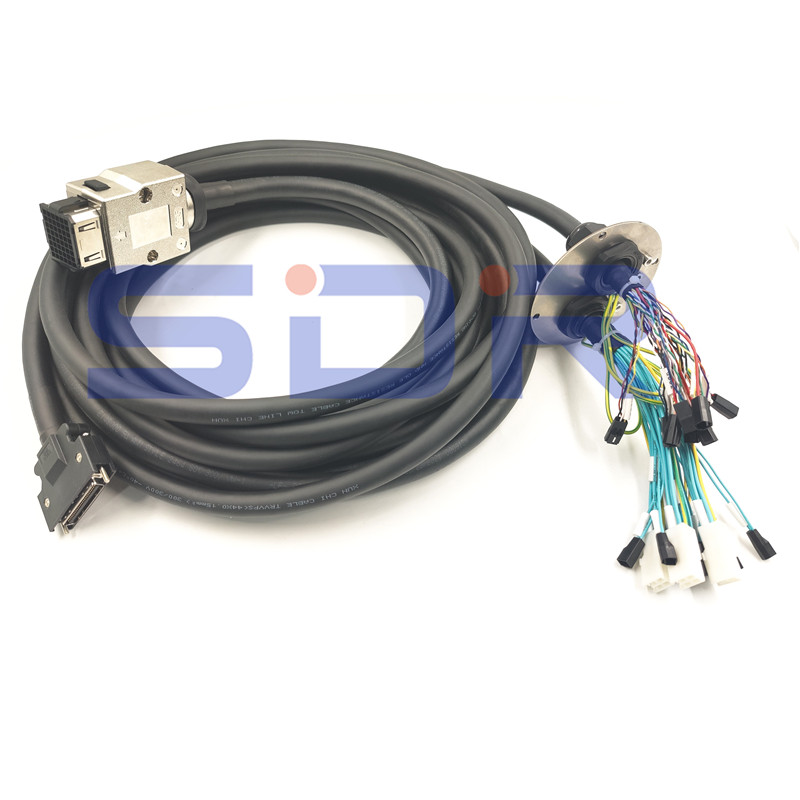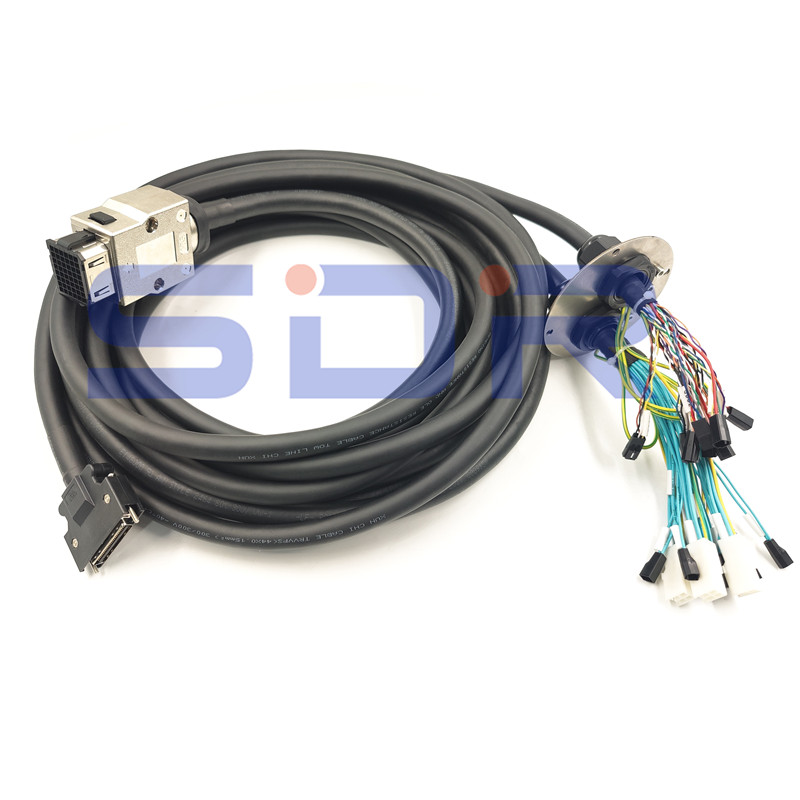
Epson Robot Encoder Cable is a cable specially designed for Epson Robots, used to connect the robot's encoder. Manufactured with high-quality materials, the cable is durable and high-temperature resistant, and can work stably in harsh environments. The connectors of EPSON Robot Encoder Cable are made of high-strength materials with excellent mechanical and electrical properties, ensuring that the cable connection is firm and reliable.

Epson Robot Encoder Cables are manufactured with high-quality materials and advanced technology to provide the following core benefits:
High-precision signal transmission - Ensure the accuracy of robot motion data and improve automation precision
Highly flexible design - supports repeated bending at large angles and is suitable for highly dynamic motion environments.
Shielding and anti-interference performance - the use of EMI shielding technology to reduce external electromagnetic interference, to ensure signal stability
High-temperature and oil-resistant--applicable to high temperature, high humidity, chemical corrosion and other harsh industrial environments.
Conforms to industrial standards--Conforms to international certification standards such as CE, UL, RoHS, etc., ensuring safety and reliability.
Customizable--Support the customization of different lengths and interface specifications to meet the needs of different robot systems.
Epson Robot Encoder Cable is suitable for many high-precision automation industries, including but not limited to:
Industrial automation - for intelligent manufacturing, automated assembly lines
Robot Manufacturing - for all types of Epson industrial robots.
Automotive parts production - to support high-precision assembly and inspection of automotive components
Electronic equipment assembly - for SMT production lines, chip packaging, PCB production and other high-precision manufacturing
Precision machinery manufacturing - plays a key role in CNC machining, metal processing, and other industries.
The following key factors need to be considered when selecting a suitable encoder cable for Epson robots:
Suitable Epson robot model - ensure the cable is compatible with the robot model
Cable length and interface type - select the appropriate length and connection type for the actual installation requirements
Operating environment requirements - if the application environment has special requirements such as high temperatures, oil or strong electromagnetic interference, you should choose the corresponding cable with greater durability
Durability and Flexibility - For robotic applications with high-frequency motion, choose highly flexible, bend-resistant encoder cables.
The length of an encoder cable can vary depending on several factors, Encoder cables are used to connect an encoder device to a controller or computer, and the appropriate cable length should be determined based on the requirements of your setup. It's a good practice to add some extra length to the cable to accommodate unforeseen adjustments or changes in the setup.Be mindful of signal integrity when choosing cable length. Longer cables can introduce signal degradation or interference, which can affect the accuracy of the encoder's readings.
The price of an encoder cable can vary widely depending on several factors, including the type of encoder, the cable specifications, its length, and the manufacturer or supplier.Some encoder cables may come with additional features like waterproofing, oil resistance, or specific certifications for certain industries. These additional features can increase the price.If you require a custom encoder cable with specific connectors, lengths, or features, expect to pay a premium for customization.
Fanuc is a well-known and respected brand in the industrial automation industry. Their encoder cables are designed and manufactured to meet high standards of quality and reliability, ensuring accurate data transmission even in demanding industrial environments.Fanuc encoder cables are designed to work seamlessly with Fanuc encoders and control systems. This compatibility reduces the risk of compatibility issues, making integration and setup easier and more reliable.They often feature robust connectors and shielding to protect against electromagnetic interference (EMI) and other potential sources of signal degradation.Fanuc typically offers excellent technical support and documentation, making it easier for users to select, install, and troubleshoot their encoder cables.
Maintaining Yaskawa encoder cables is essential to ensure the proper functioning of your industrial automation and robotics systems.Perform visual inspections of the cables to check for any visible damage, such as cuts, abrasions, or kinks.Inspect the connectors for any signs of corrosion or damage.Keep the cables clean and free of debris, oil, and other contaminants that can accumulate over time. Use a soft cloth or a mild cleaning solution if necessary.
If you're looking to purchase a Fanuc pulse coder cable, here are the steps you can follow to ensure a smooth buying process.Identify the specific requirements of your application, such as the cable length, type of connectors needed.You can contact us via phone or email on the website to provide us with details of your cable requirements including cable length, connectors and any other specifications.